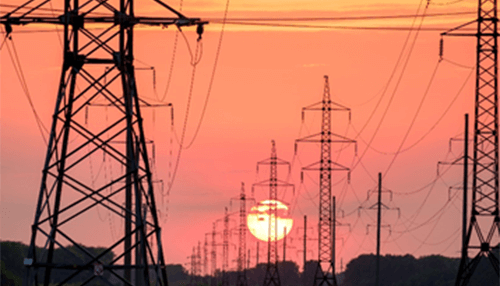Enterprises always gave priority to saving operational costs of the business energy comparison, one of them being saving capital on energy. One of the ways to have a holistic plan is to switch to an energy provider that cuts out the right tariff plan for your company. Business energy comparison in the UK must lay out a plan that provides a strategy to save capital, provides the best customer service plans within that budget and manages your account online.
Switching an energy provider may be a good idea. But the company heeding for a change must compare and contrast various factors of all the available prospects in the market. First of all, you must know the different kinds of tariff rates. This can be explained as follows:
1. Fixed-Rate Tariffs
The rate per kWh is predetermined between the energy provider and the company. The term for which the rate is decided is fixed and defined in the contract.
2. Variable Rate Tariffs
As the name suggests, the tariff rates of electricity will not remain static during the contract. They will change according to the highs and lows of the market.
3. Dual Fuel Energy Tariffs
In this plan, the company receives both electricity and gas from the same provider. It saves a lot of cost and manhours.
4. Deemed Rate Tariffs
Deemed rates are charged by the energy provided by the enterprise if they have not finalized any rates in a contract. It is advised to take an energy plan as deemed rates are comparatively higher.
5. Rollover Contracts
Most of the energy contracts are like subscriptions. If the company fails to renew their contract after the conclusion of its term, the old contract automatically renews. Rollover energy contracts must be reviewed at the earliest to save the company from extra costs.
How to Choose an Energy Provider
If you have not reviewed your energy provider, you might be getting charged heftily under the variable tariff rates or a default tariff plan. OFGEM, the Office of Gas and Electricity Markets Authority, is the government regulator of the supply of electricity and natural gas in Great Britain.
If you do some research to find out more information about tariff rates in the UK, you may come across the perusal of the OFGEM report by companies like Business Energy Comparison UK, which will give you an idea of the percentage of homes in the UK that run on default or variable tariff rates.
You will find around 55% of homes in the UK run on default or variable rates. So, you can just imagine how much a large enterprise could save in operational costs by subscribing to a smart subscription plan with a decent energy provider in the UK. Therefore, this article talks about the key factors taken into account before finding the best provider.
Price
The tariff plan depends on the rate per kWh the company charges. It is one of the major factors influencing factors in choosing a provider. While operational costs could be cut down significantly by subscribing to the cheapest plan, the energy rates should be taken into consideration, among other things.
For instance, a company charging an additional £50 but providing the best customer service is still a good bargain. You might not like waiting in long calls and failing to put across your grievance or waiting for a reply to the email you sent about electricity blackouts.
Mode of Payment
The next factor after pricing should be the mode of payment. The energy provider must be able to give you a few options in terms of payments. The cost may be charged monthly through direct debit or you may wish to fulfil your obligation to pay quarterly after the receipt of the bill.
The provider must have an office that accepts payment in cash in case your bank account server is down or a check. However, it is smart to pay directly from your bank account to avoid unnecessary hassle. Sometimes, energy providers offer a discount on prepaid plans subscribed by small enterprises and monthly payments.
Clean and Green
The government of the UK aims to become an economy with net-zero carbon emissions by 2050. In this light, households and companies want to subscribe to energy providers that provide green and clean energy. This attracts some subsidies provided by the government. Some small providers only offer energy generated from renewable sources or vegan energy where no animals were used in producing energy.
Exit Fees
An exit fee is charged by the energy provider if you leave their subscription before the end of the term of your contract. However, switching should only be considered if you have found a more cost-effective option. The company cannot levy this if you choose to switch within 42 days of the end of your subscription.
Vulnerability Commitment
You need to have an energy provider who is a member of Vulnerability Commitment. The supplier is obligated under this to provide energy at a cheaper rate or waive off some penalty on late payment for companies going through a financial crisis or any other difficulty.
Choosing an appropriate business energy comparison can save your company a lot of money. However, do not forget to inquire about or read online reviews about the supplier. Check the licensing and other regulatory documents before entering into any contract. It is better to check before instead of facing any trouble later.



